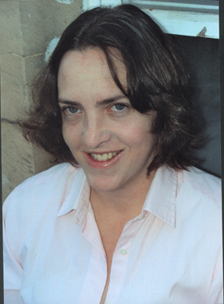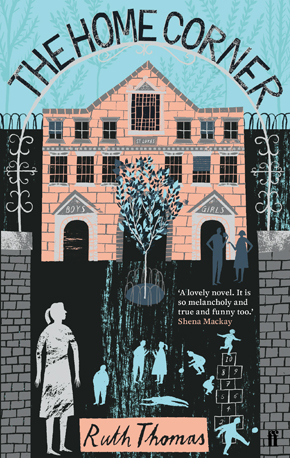Notes to self (for sharing)
by Ruth ThomasI’m always wary of sounding bossy when compiling lists of advice. So what follows is a kind of ‘note to self’ which I hope will work for others too. These points generally reflect the times when I’ve gone wrong (based on a ‘learning through mistakes’ principle), as well as some writing touchstones which I suppose have always been with me.
1. Read a lot
There was a time, writing my first novel, when I thought I should cut myself off from reading other books. The logic was that I wouldn’t be unduly influenced by other novels, and could come up with something fresh and untrammelled. This was an extremely bad idea. It’s inevitable that you’ll be influenced by other writing – by voices, plotlines, structures; by books you love and books you can’t stand. And if you don’t read, you might not know there’s writing out there that will bowl you over (e.g. I had no idea, having spent a lot of time reading mainly women writers, how much I’d love writing by Camus and James Kelman and Alan Warner and Russell Hoban). Developing your own style is a kind of pick-and-mix process, gleaned mainly from reading. Also, when you’ve been bogged down in your own work, it’s a relief to take a breather. It’s like stepping into a different room at a party.
2. Adapt
Most writers have something which is naturally their ‘thing’. Mine is short-story writing: I love the elliptical nature of short stories – the way they can suggest a whole life or situation in a small space. Unfortunately though, not everybody agrees with my belief that the short story is the ultimate literary genre. So I’ve had to adapt and work with other forms too – mainly the novel and the dramatic script. And through a process of trial and error, I’ve realised that I haven’t had to abandon short-story writing techniques with these forms – I’ve just rejigged them. I approach novel chapters with the same small-scale focus of short stories – just with a sense of the bigger world that links them. And I’ve played with dialogue, extended it, cut out the “he said/she saids”, and discovered that I have the basis of a script. In the process, I’ve managed to make inroads on my own self-doubt. A short-story writer can be a novelist or a poet or a scriptwriter too, if they want to be.
3. Give yourself a break
Writing works best for me in smallish chunks. This reflects the fact that I’ve got three school-age children and therefore a finite time (i.e. between 9.30 and 2.30, term-time) in which to write. I also have a full-time job for half the year. So it’s tempting to write like the blazes whenever I have the chance. However, I’ve found that writing like this – as if you’re running a marathon – can be highly counter-productive: you stop engaging with the outside world; you start to look inwards, to procrastinate, to lose your sense of humour, to question the meaning of life, and ultimately to feel shattered. Writing is a lot more fun and productive if you give yourself at least one decent break during the day. So go for a swim, or a walk. Make yourself an interesting lunch. Meet a friend for coffee, or feed the ducks. You’ll return refreshed and less hide-bound.
4. Keep a notebook
This is something I’ve started doing in the last few years, not so much to jot down observations as to remind myself of plot twists. A novel can be a huge, unruly beast and it’s important to keep it tamed with some memory-joggers on how to structure it. I don’t tend to worry so much with stories, which seem like an assemblage of notes and observations anyway. It’s a good thing to have a notebook, though, whatever you’re writing. Because you never know what you might see or hear (or think) that could come in handy.
5. Avoid editing as you go along
Try not to accommodate your inner critic. I once spent over a year going over about four chapters of a novel when I could have sorted out the whole bare bones of it and reached the exciting, second-draft stage. Don’t worry too much if A doesn’t quite link to B, or if so-and-so couldn’t possibly have been at X on such-and-such a date. These are details that will sort themselves out later. Seeing your word-count increase is one of the most encouraging experiences you can have as a writer, and if you’re constantly chipping away at it, you’ll just get depressed. First attempts at expressing something can sometimes be the best attempts, too: that’s also worth bearing in mind. So try not to tinker, or to be too anxious about individual paragraphs at the first draft stage. By all means murder your darlings, but wait till you’ve reached the second draft.
6. Remember who you’re writing for
If it’s for a market, and if it’s turned into a slog, ask yourself why you’re doing it. If you’ve started to dread a particular project, maybe it’s a sign you’ve lost your real reason for writing it. So put it aside for a day, a week, a month, and work on something else. The chances are, the ‘something else’ will have a subconscious bearing on it anyway – you’ll just be having more fun writing it. There doesn’t seem to be much point writing if you’re not doing it for your own reasons – because you want to tell a story or make a point or connect with that mysterious Reader out there. And by writing exactly what you want, you’re far more likely to engage with someone else who wants to read it.
 Ruth Thomas was born in Kent but has lived in Scotland since she was eighteen, studying English at Edinburgh University. She is the author of the story collections Sea Monster Tattoo, The Dance Settee and Super Girl, and the novels Things to Make and Mend and The Home Corner, published in paperback by Faber & Faber on 1 May. She lives with her family in Edinburgh, and lectures in Creative Writing at St Andrews University.
Ruth Thomas was born in Kent but has lived in Scotland since she was eighteen, studying English at Edinburgh University. She is the author of the story collections Sea Monster Tattoo, The Dance Settee and Super Girl, and the novels Things to Make and Mend and The Home Corner, published in paperback by Faber & Faber on 1 May. She lives with her family in Edinburgh, and lectures in Creative Writing at St Andrews University.
ruth-thomas.com


